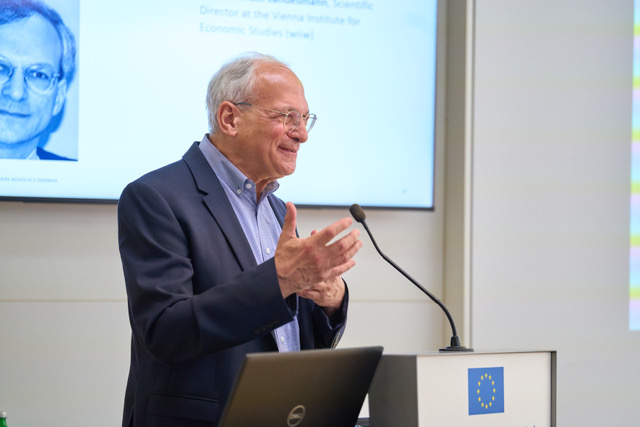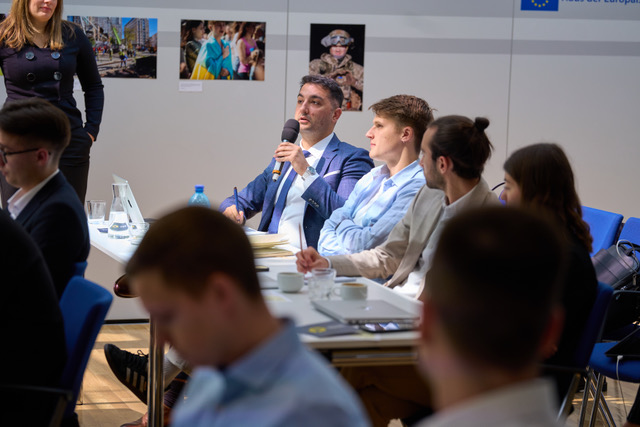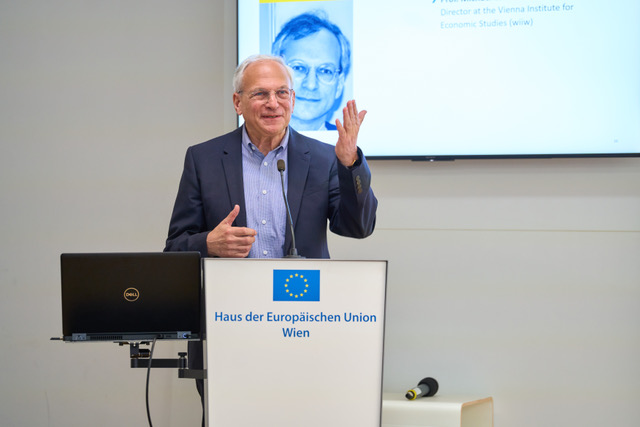
Industrial policy is experiencing a major revival, driven by profound shifts in geopolitics and geoeconomics. For a long time, the EU focused on levelling the playing field through structural reforms, such as the Green Deal. Industrial policy had receded from the agenda. Today it is back – with urgency.
What is Industrial Policy Trying to Achieve?
Industrial policy is not limited to subsidies for manufacturing. At its core, it is a long-term strategy aimed at transforming economic structures and enhancing productivity, competitiveness, and resilience. It encompasses workforce training, research and development infrastructure investment, trade policy, and more.
Europe risks falling behind the global tech frontier. While the US was once the big tech leader, new players such as China and India have emerged, investing heavily in strategic technologies and digital capabilities. This concentrated innovation effort threatens Europe’s traditional areas of strength in advanced industrial sectors and tradable goods.
Internal Challenges: Cohesion and Missed Potential
Internally, the EU used to seek minimizing regional disparities through cohesion policy. But focusing solely on high-tech sectors risks missing the broader productivity potential of “mid-tech” regions and companies. Many European companies may not be innovation leaders, but they are critical to the industrial base. A truly inclusive industrial policy must target these companies with tailored strategies – what we call “appropriate industrial policy”.
From Climate to Competitiveness
The European Green Deal initially led the evolution of industrial policy, placing climate at the center. But recent geopolitical shocks – Russia’s war, the energy crisis, rising defense needs – have exposed vulnerabilities in Europe’s strategic autonomy. As a result, the pendulum has swung back toward competitiveness, energy security, and resilience.
Europe in a Changing Global Order

The global landscape has changed dramatically. Europe no longer enjoys the uncontested competitive advantages it once had. The global division of labor is shifting, and Europe’s traditional comparative advantages are under pressure. Demography plays a key role. With stagnant population growth, mostly sustained by migration, the role of migration raises complex questions for long-term competitiveness.
In parallel, the US – traditionally seen as a guardian of global public goods – has adopted a more unilateral stance and with “America First” it is turning inward focusing on national interests. The international system is becoming more fragmented, unstable and unpredictable. Trump 2.0 further undermines predictability in trade and foreign policy. Industrial policy is gaining traction as a strategic response to this instability.
Core Challenges for EU Industrial Policy
- Technological competition at the frontier
- Rising global competitors, especially in Asia
- Intra-European cohesion and avoiding internal fragmentation
- Climate change and ecological transformation
From Crisis to Strategy: A Cascade of Shocks
Recent years have exposed the vulnerabilities of Europe’s industrial foundations:
- Financial crisis – Slow growth and innovation gaps
- COVID-19 – Disrupted supply chains and overreliance on foreign production
- Energy crisis – Shifting from idealism to pragmatism
- Trade turbulence – Need to rethink strategic dependencies
This series of shocks has led to a wave of EU Initiatives: RePowerEU, Chips Act, Raw Materials Act, Sovereignty Fund, among others. While promising, these programs vary greatly in focus, scale, and implementation. Their effectiveness and coordination remain to be evaluated.
Fragmentation and Financing: National vs EU Level
Industrial policy is conducted both at EU and national level – and disparities abound. For example:
- Germany: Relies heavily on national funding
- Romania & Bulgaria: Almost entirely dependent on EU support
The Recovery and Resilience Facility (RRF) was a turning point: for the first time, the EU borrowed collectively to support recovery and transformation. This may set a precedent for a more federated fiscal policy, with industrial investments spread across climate, digital and security priorities.
New Tools and Concepts: Steering Industrial Transformation
The EU is no longer just a regulator – it has become a strategic planner. New concepts are:
- Smart Specialization Strategies: Aligning regional strength with EU priorities
- Mission-Oriented Innovation Policy
- Important Projects of Common European Interest (IPCEI): Creating champions in areas like batteries and semiconductors (Airbus style consortia)
But are they working? Monitoring and evaluation remain weak points. A proliferation of initiatives risks incoherence unless aligned under a clear strategic vision.
Constraints and Coordination: EU industrial policy must navigate three major constraints:
- Trade policy (WTO rules and global partners)
- Competition policy (avoiding market distortions)
- Fiscal constraints (limited EU budget and national divergence)
These constraints raise key questions:
- Can industrial policy be applied uniformly across all member states?
- Will richer regions benefit disproportionately?
- Are local authorities equipped to design and manage effective programs?
Conclusion: Toward Open Strategic Autonomy
The concept of “Open Strategic Autonomy” is still taking shape. Europe needs to internalize the global reactions to its policy tools to avoid unintended consequences. Industrial policy is back – and here to stay. But to be successful it must be cohesive, evidence based and responsive to a multipolar, unstable world.
Q&A
“In regards to fiscal conditions, which are often discussed as a constraint: Europe has a superpower—its savings, particularly in Germany. There is still significant untapped potential that even the U.S. does not possess. What can be done to mobilize these savings?”
Mobilizing these resources remains a major challenge. A large share of European capital and investment portfolios is directed toward the U.S. stock market. Europe is a net capital exporter. We need to confront this issue and work to raise the domestic savings rate in order to unlock additional investments—whether in defense, green technology, social infrastructure, innovation, or workforce retraining.
“On the concept of diversifying supply chains: current efforts seem somewhat arbitrary, especially concerning Central Asia or Azerbaijan. Should Europe consider cutting red tape and relaxing certain requirements to better diversify and realize its potential?”
The EU faces many internal challenges and has largely focused inward—on crisis resolution, the single market, and cohesion. Enlargement has been a priority, but relations with the Global South have been largely neglected. The EU still does not function as a true geopolitical actor. Central Asian markets are deeply entangled in geopolitical dynamics. While it’s important to listen to companies’ views on regulation, it’s equally crucial to engage local populations to understand how they perceive European involvement.
“Would introducing a new European common debt instrument help create momentum in a more cohesive way? What could be the negative consequences?”
The EU has already acknowledged that its response to the 2008 financial crisis was inadequate. In contrast, during the COVID-19 crisis, it took a different path with the Recovery and Resilience Fund, raising money jointly and tapping into stronger capital market access. A deeper commitment to Europe, supported by EU institutions and member states, will be essential in building a euro-backed Capital Markets Union. While divisions remain—particularly among the so-called frugal states—Germany stands out as an outlier with vast untapped potential. With the U.S. stepping back from its role as the global reserve currency, the development of a robust euro bond market could become a key pillar of European financial sovereignty.



